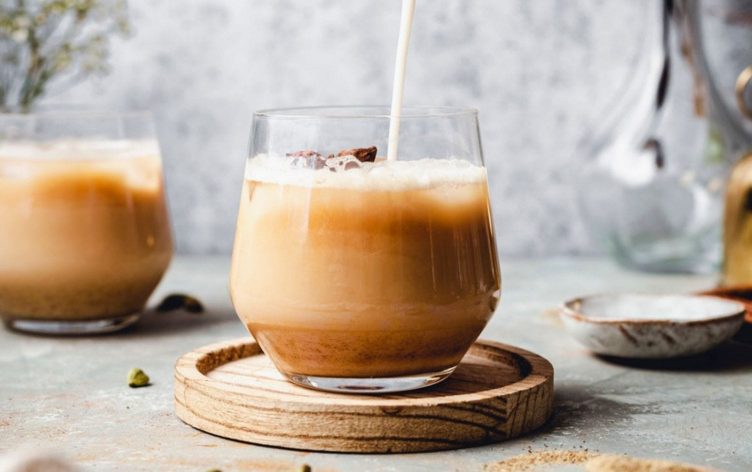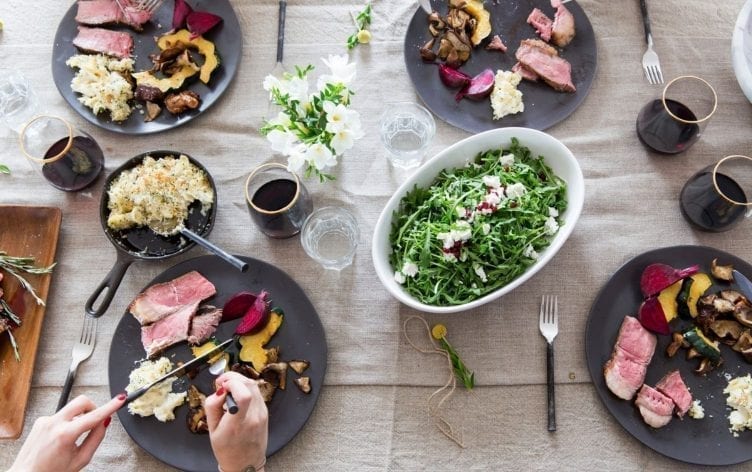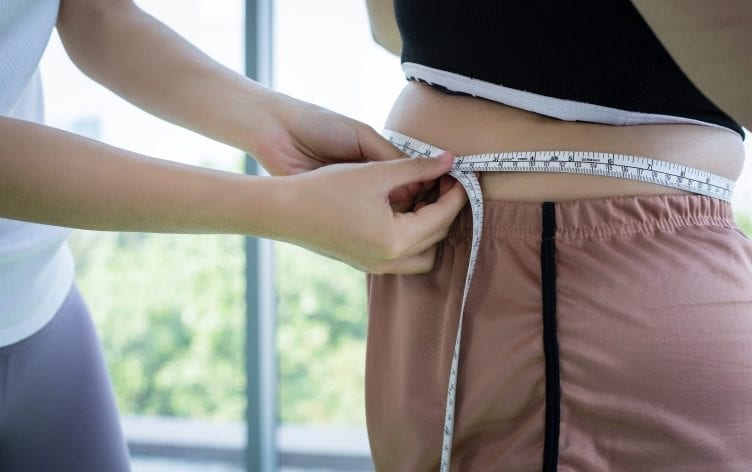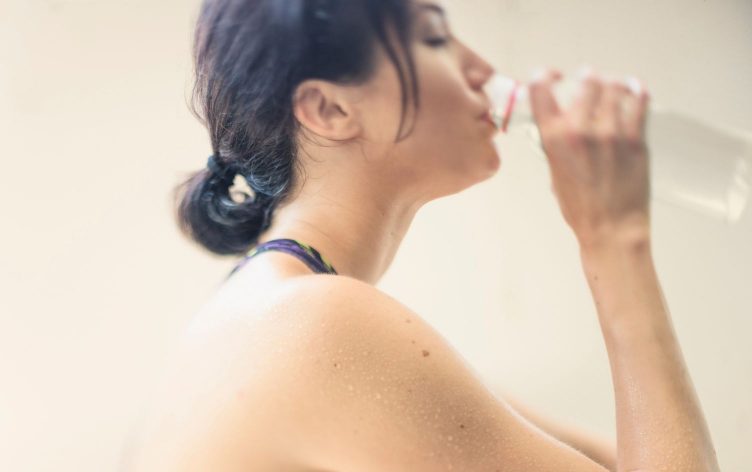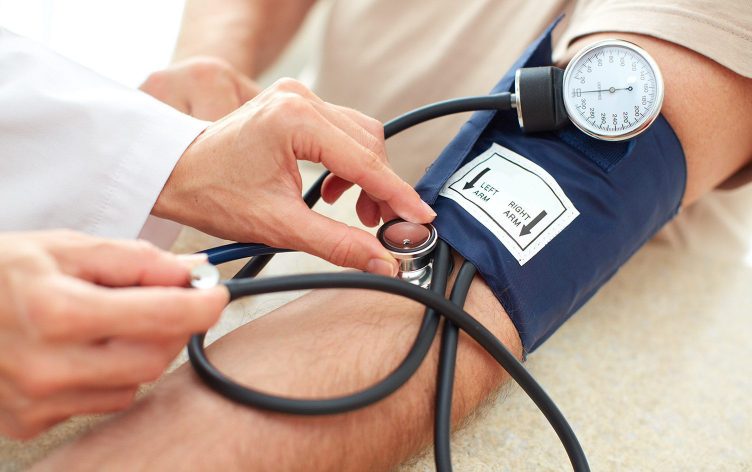The arrival of sweater weather is synonymous with a warm beverage, either to start your day or pair with a good book for a relaxing evening. While a cup of black coffee or tea is a healthy, antioxidant-rich staple, some classic fall drinks like apple cider and pumpkin spice lattes can be high in sugar and calories — potentially hindering your weight-loss efforts.
These beverages contain sugar in several forms, including flavored syrups, highly-processed pre-packaged blends and whipped cream. The good news is you don’t have to go cold turkey on these seasonal treats. “These drinks are liquid comfort food, and there’s nothing wrong with incorporating such foods into your diet in moderation,” says Amy Gorin, MS, RDN, a plant-based registered dietitian in the New York City area.
One thing to keep in mind: The American Heart Association recommends men and women consume no more than 36 and 25 grams of added sugar per day, respectively. Even the smallest of these drinks often blows that out of the water. On days you consume these beverages, make sure to pay attention to the rest of your diet to ensure you reach your nutrition goals.
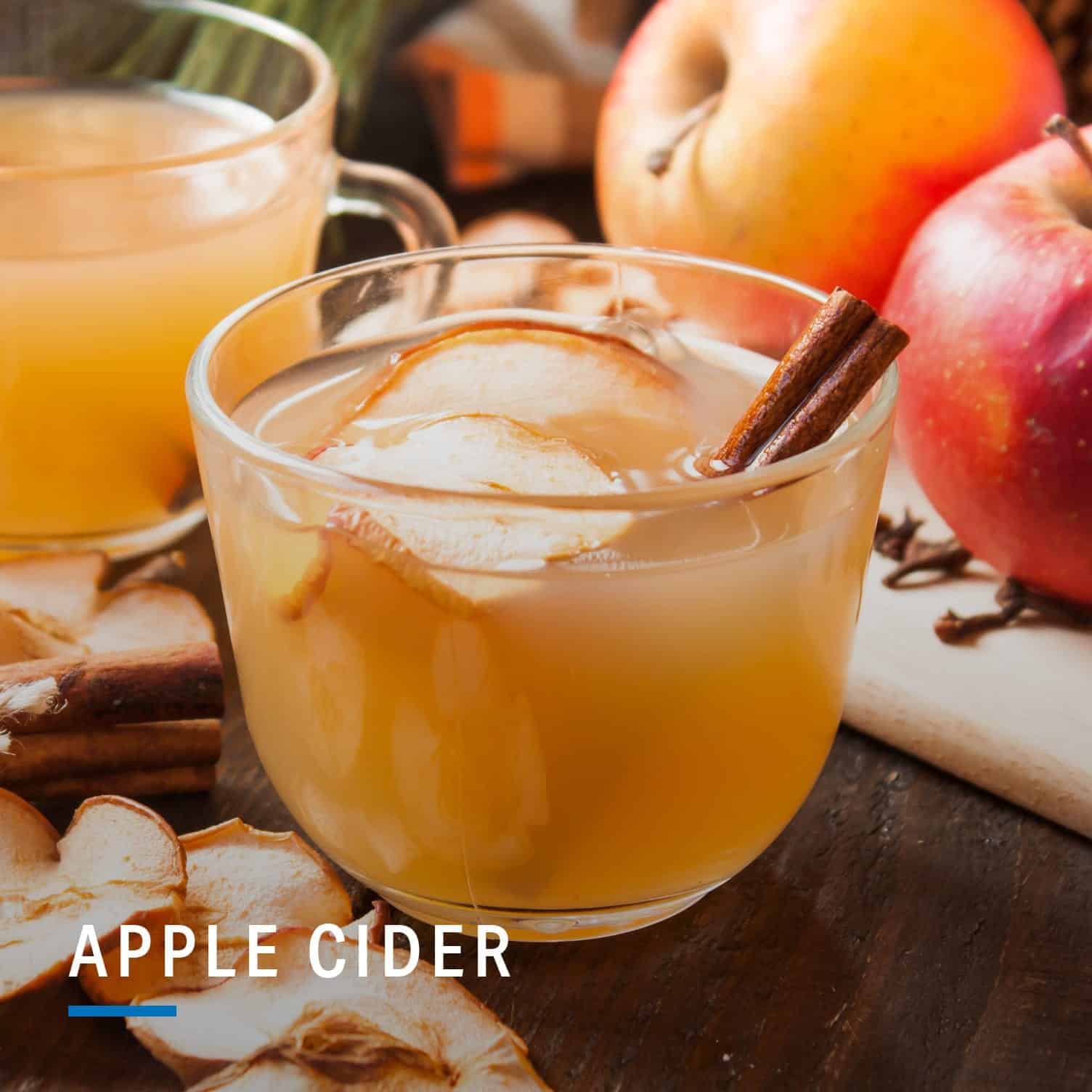
Apple cider is unfiltered apple juice, which is why it looks cloudier than regular juice. Some coffee shops make specialty apple-flavored drinks with regular apple juice, adding flavored syrup to the mix and topping it with whipped cream. For example, at Starbucks, this is its Caramel Apple Spice, and there is an incredible 71 grams of sugar and 380 calories in a 16-ounce grande.
The smart fix: Instead of reaching for a specialty beverage, enjoy a smaller glass of the real deal. It’s still juice, but cutting down your serving size and eliminating the extra sugar and whipped cream limits it to 120 calories and 26 grams of sugar. One bonus: It contains 100% of your daily value for vitamin C.
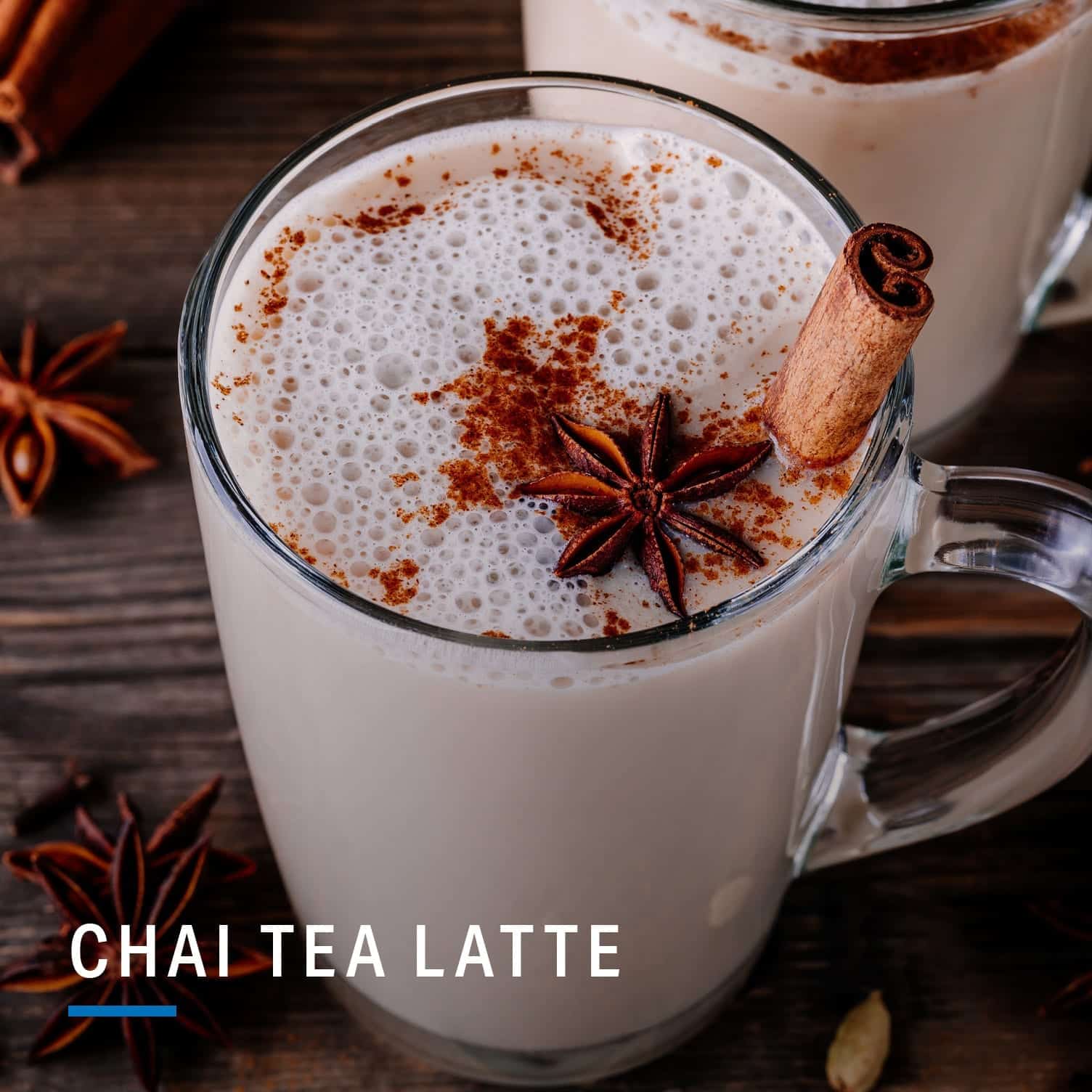
googletag.cmd.push(function() {
googletag.display(“ad-tag-300×250-post-m2”);
});
Chai tea is infused with warm fall spices like cinnamon, cloves and cardamom. When you order a chai tea latte at a coffee shop, you’ll likely get steamed milk combined with a chai tea concentrate (often poured from a box), which contains a lot of sugar. In fact, a grande chai tea latte at Starbucks contains 42 grams of sugar. The upside: “Even though you’re taking in added sugar, you’re also getting nutritional antioxidant benefits from tea,” says Gorin, along with some protein from the milk.
The smart fix: Ask your barista for a smaller size and to go light on the concentrate. Another even healthier option: Order a plain brewed chai tea (this is brewed from a tea bag), which has zero calories and still contains those beneficial anti-inflammatory antioxidants. You can then add a splash of your favorite milk.
CLICK TO TWEET THIS ARTICLE > Looking to make your favorite fall-flavored coffee a little healthier? @MyFitnessPal is sharing simple tips for healthifying your favorite beverage. #myfitnesspal
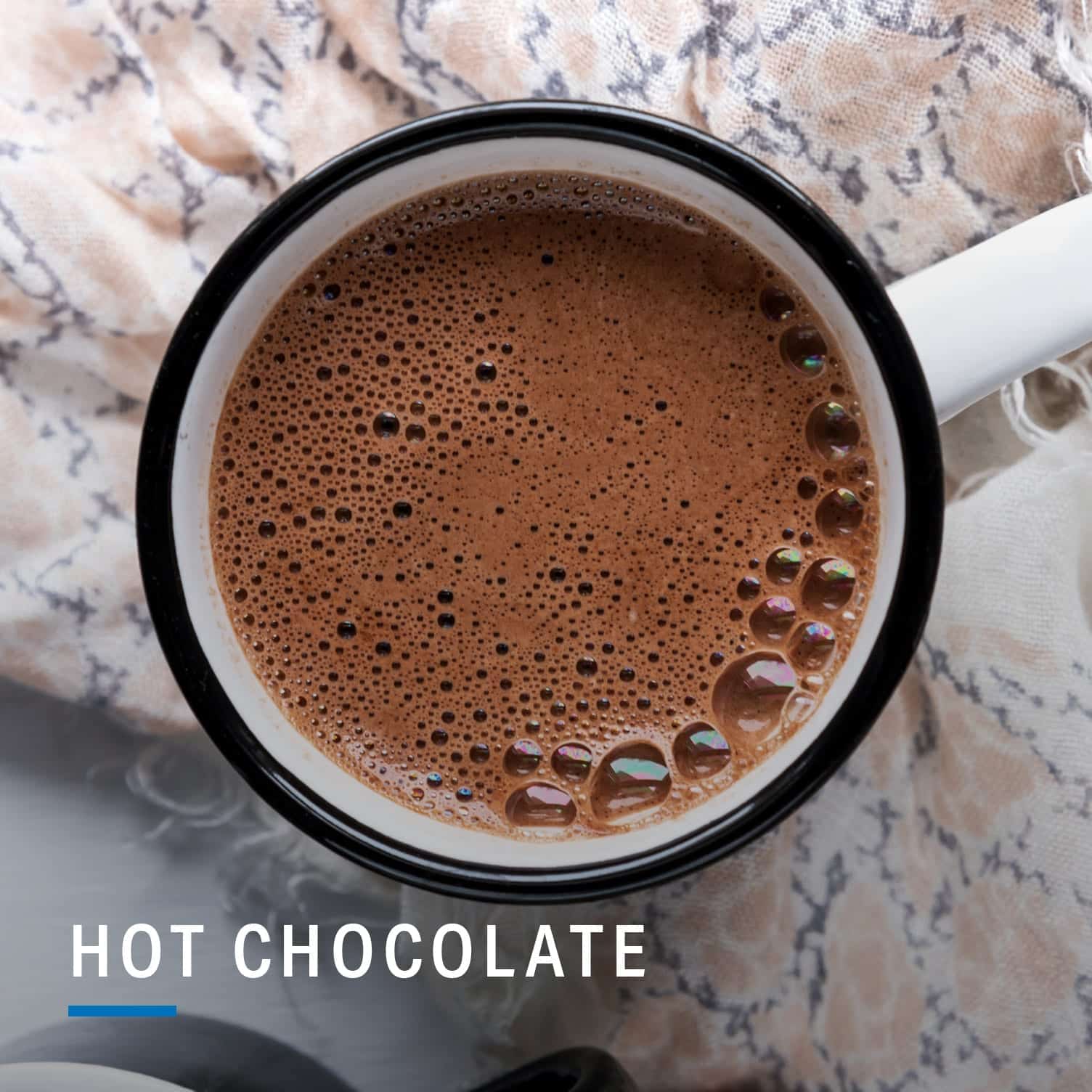
While chocolate contains antioxidants, it’s often loaded with added sugar in beverage form. For example, a classic Swiss Miss packet contains 28 grams of sugar and 160 calories (as well as other preservatives), while a medium hot chocolate from McCafe at McDonald’s made with skim milk contains 59 grams of sugar and 350 calories. Moreover, “fancy” hot chocolate beverages like Starbucks White Hot Chocolate or Salted Caramel Hot Chocolate are essentially sugar bombs, made with white chocolate or caramel sauce and whipped cream.
The smart fix: For your hot cocoa fix, try this recipe to make a cup at home. Opt for chocolate labeled 65% or higher (the darker the chocolate, the more antioxidants). You can control how much sweetener you use — because a little drizzle of maple syrup or a teaspoon of sugar goes a long way.
READ MORE > 18 SMART WAYS TO CUT SUGAR FROM YOUR DIET
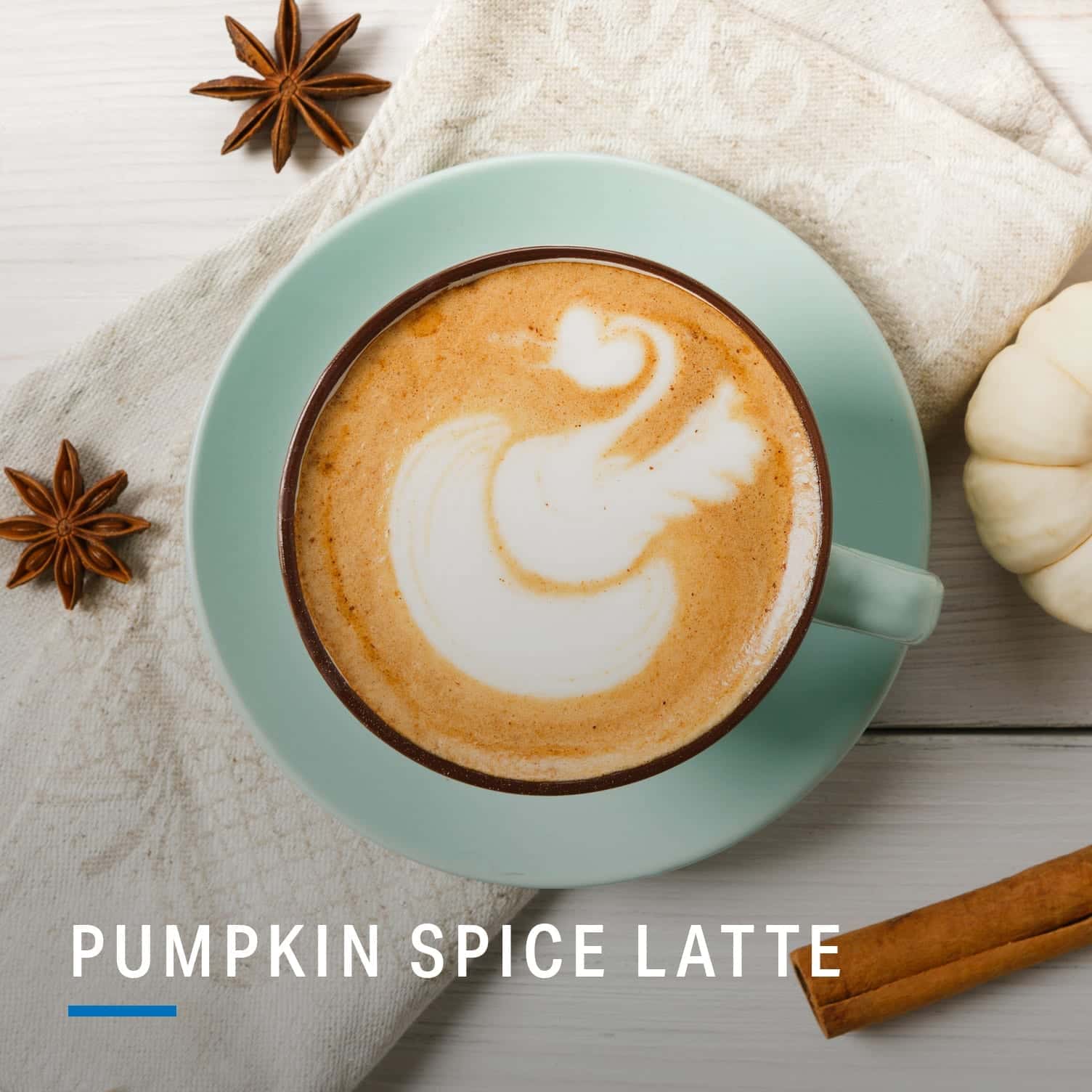
“If you fully embrace the season by switching from a regular morning latte to a pumpkin spice latte daily, you’re likely doubling (or tripling) calories,” says Gorin. For example, a medium pumpkin spice latte from Dunkin’ made with skim milk has 340 calories and 55 grams of sugar, compared to just 100 calories and 14 grams of sugar in its medium unflavored latte.
The smart fix: If you want one, skip the whipped cream and sugar drizzle on top. You can also ask for fewer pumps of pumpkin spice syrup. Or, better yet, make it yourself at home. Gorin has figured out a way to make a healthier pumpkin spice latte with just 100 calories, 15 grams of sugar and tons of pumpkin flavor.
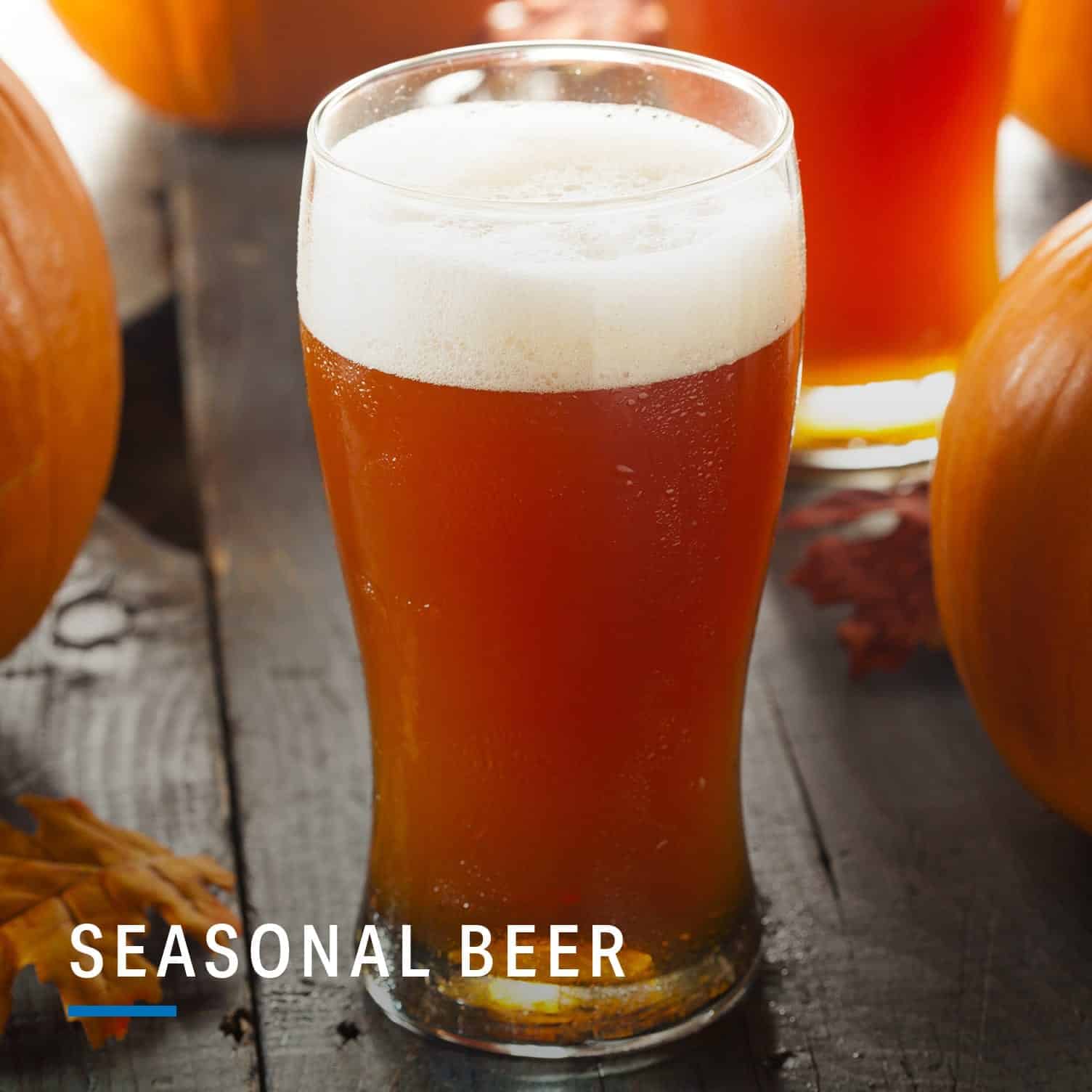
Pumpkin and Oktoberfest beers are here for a limited time, so they feel special, but you’ll need to pay attention to the pour if you want to partake. “The serving size for beer is 12 ounces for a 5% alcohol content beer,” says Gorin. If you happen to be out on a patio this fall for a drink, the amount you get at a bar is usually more than one drink (which means more alcohol and more calories). Some of the seasonal beers have far more than 5% alcohol content, so always check the label on yours to know what you’re getting.
Not only can calories be a concern, but alcohol also has a profound effect on sleep, disrupting sleep in the second half of the night, research shows. Poor sleep can negatively affect your metabolism, appetite and activity levels in such a way that puts you at risk for weight gain, says research.
The smart fix: If you’re ordering a beer, get one that comes in a bottle (or is poured from bottle to glass) rather than on tap, which ensures you stick to a 12-ounce serving size, recommends Gorin.
Originally published October 2020
Discover hundreds of healthy recipes — from high protein to low sugar — via “Recipe Discovery” in the MyFitnessPal app.
The arrival of sweater weather is synonymous with a warm beverage, either to start your day or pair with a good book for a relaxing evening. While a cup of black coffee or tea is a healthy, antioxidant-rich staple, some classic fall drinks like apple cider and pumpkin spice lattes can be high in sugar and calories — potentially hindering your weight-loss efforts.
These beverages contain sugar in several forms, including flavored syrups, highly-processed pre-packaged blends and whipped cream. The good news is you don’t have to go cold turkey on these seasonal treats. “These drinks are liquid comfort food, and there’s nothing wrong with incorporating such foods into your diet in moderation,” says Amy Gorin, MS, RDN, a plant-based registered dietitian in the New York City area.
One thing to keep in mind: The American Heart Association recommends men and women consume no more than 36 and 25 grams of added sugar per day, respectively. Even the smallest of these drinks often blows that out of the water. On days you consume these beverages, make sure to pay attention to the rest of your diet to ensure you reach your nutrition goals.

Apple cider is unfiltered apple juice, which is why it looks cloudier than regular juice. Some coffee shops make specialty apple-flavored drinks with regular apple juice, adding flavored syrup to the mix and topping it with whipped cream. For example, at Starbucks, this is its Caramel Apple Spice, and there is an incredible 71 grams of sugar and 380 calories in a 16-ounce grande.
The smart fix: Instead of reaching for a specialty beverage, enjoy a smaller glass of the real deal. It’s still juice, but cutting down your serving size and eliminating the extra sugar and whipped cream limits it to 120 calories and 26 grams of sugar. One bonus: It contains 100% of your daily value for vitamin C.

googletag.cmd.push(function() {
googletag.display(“ad-tag-300×250-post-m2”);
});
Chai tea is infused with warm fall spices like cinnamon, cloves and cardamom. When you order a chai tea latte at a coffee shop, you’ll likely get steamed milk combined with a chai tea concentrate (often poured from a box), which contains a lot of sugar. In fact, a grande chai tea latte at Starbucks contains 42 grams of sugar. The upside: “Even though you’re taking in added sugar, you’re also getting nutritional antioxidant benefits from tea,” says Gorin, along with some protein from the milk.
The smart fix: Ask your barista for a smaller size and to go light on the concentrate. Another even healthier option: Order a plain brewed chai tea (this is brewed from a tea bag), which has zero calories and still contains those beneficial anti-inflammatory antioxidants. You can then add a splash of your favorite milk.
CLICK TO TWEET THIS ARTICLE > Looking to make your favorite fall-flavored coffee a little healthier? @MyFitnessPal is sharing simple tips for healthifying your favorite beverage. #myfitnesspal

While chocolate contains antioxidants, it’s often loaded with added sugar in beverage form. For example, a classic Swiss Miss packet contains 28 grams of sugar and 160 calories (as well as other preservatives), while a medium hot chocolate from McCafe at McDonald’s made with skim milk contains 59 grams of sugar and 350 calories. Moreover, “fancy” hot chocolate beverages like Starbucks White Hot Chocolate or Salted Caramel Hot Chocolate are essentially sugar bombs, made with white chocolate or caramel sauce and whipped cream.
The smart fix: For your hot cocoa fix, try this recipe to make a cup at home. Opt for chocolate labeled 65% or higher (the darker the chocolate, the more antioxidants). You can control how much sweetener you use — because a little drizzle of maple syrup or a teaspoon of sugar goes a long way.
READ MORE > 18 SMART WAYS TO CUT SUGAR FROM YOUR DIET

“If you fully embrace the season by switching from a regular morning latte to a pumpkin spice latte daily, you’re likely doubling (or tripling) calories,” says Gorin. For example, a medium pumpkin spice latte from Dunkin’ made with skim milk has 340 calories and 55 grams of sugar, compared to just 100 calories and 14 grams of sugar in its medium unflavored latte.
The smart fix: If you want one, skip the whipped cream and sugar drizzle on top. You can also ask for fewer pumps of pumpkin spice syrup. Or, better yet, make it yourself at home. Gorin has figured out a way to make a healthier pumpkin spice latte with just 100 calories, 15 grams of sugar and tons of pumpkin flavor.

Pumpkin and Oktoberfest beers are here for a limited time, so they feel special, but you’ll need to pay attention to the pour if you want to partake. “The serving size for beer is 12 ounces for a 5% alcohol content beer,” says Gorin. If you happen to be out on a patio this fall for a drink, the amount you get at a bar is usually more than one drink (which means more alcohol and more calories). Some of the seasonal beers have far more than 5% alcohol content, so always check the label on yours to know what you’re getting.
Not only can calories be a concern, but alcohol also has a profound effect on sleep, disrupting sleep in the second half of the night, research shows. Poor sleep can negatively affect your metabolism, appetite and activity levels in such a way that puts you at risk for weight gain, says research.
The smart fix: If you’re ordering a beer, get one that comes in a bottle (or is poured from bottle to glass) rather than on tap, which ensures you stick to a 12-ounce serving size, recommends Gorin.
Originally published October 2020
Discover hundreds of healthy recipes — from high protein to low sugar — via “Recipe Discovery” in the MyFitnessPal app.

